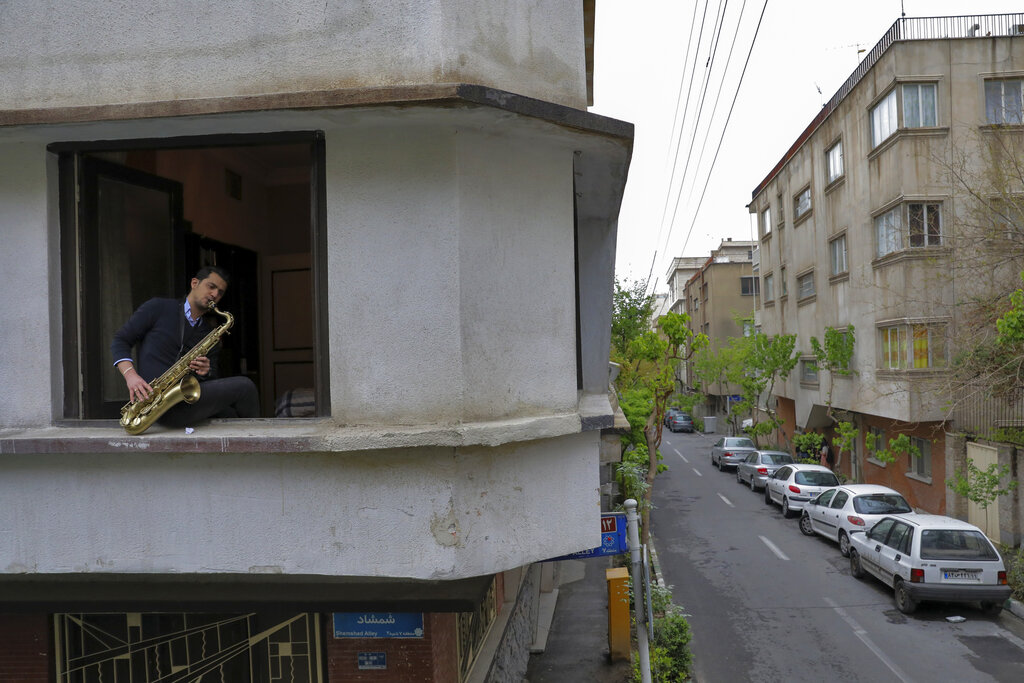
Mohammad Maleklee, 23, of the National Orchestra of Iran and Tehran Symphony, plays saxophone in his window, during mandatory self-isolation due to the new coronavirus disease outbreak, in Tehran, Iran. With performance halls now closed and many hiding in their homes over the Mideast's worst outbreak of the virus, Iranian musicians now find performance spaces where they can. That includes rooftops littered with debris and water tanks, empty front porches and opened apartment windows where their music floats down on others stuck in their homes. AP
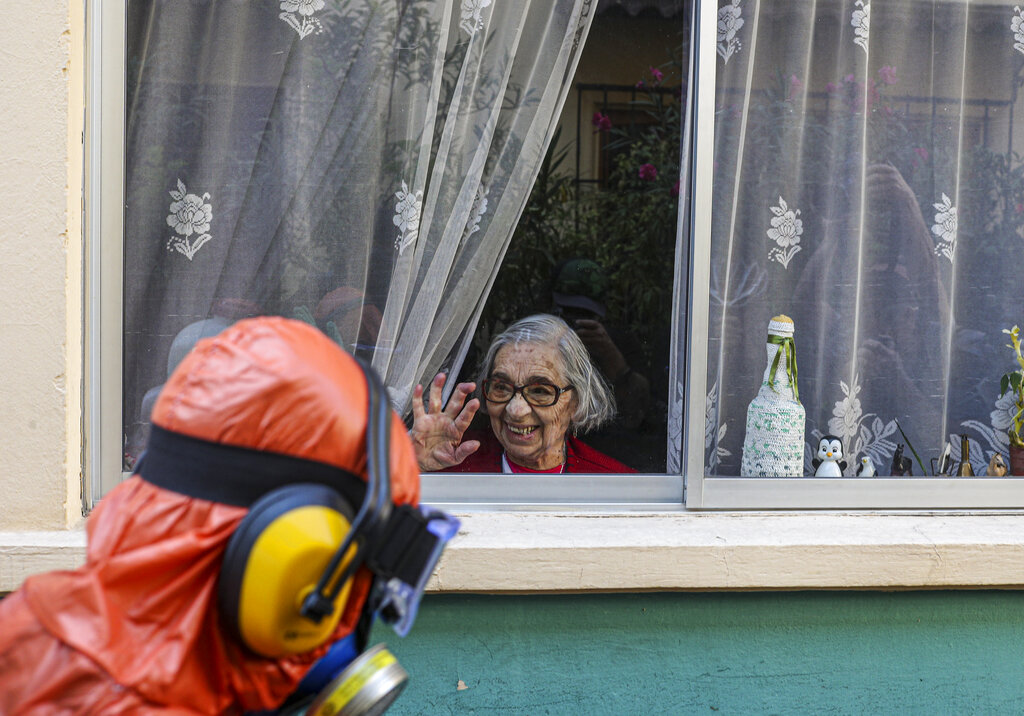
A woman waves to a city worker dressed in a hazmat suit as he disinfects the streets in her neighborhood as a precaution against the spread of the new coronavirus, in Santiago, Chile, Wednesday, April 15, 2020. AP

NHS staff applaud outside the Chelsea and Westminster Hospital in London during the weekly "Clap for our Carers", Thursday, April 16, 2020. The applause takes place across Britain every Thursday at 8pm local time to show appreciation for healthcare workers, emergency services, armed services, delivery drivers, shop workers, teachers, waste collectors, manufacturers, postal workers, cleaners, vets, engineers and all those helping people with coronavirus and keeping the country functioning while most people stay at home in the lockdown. AP
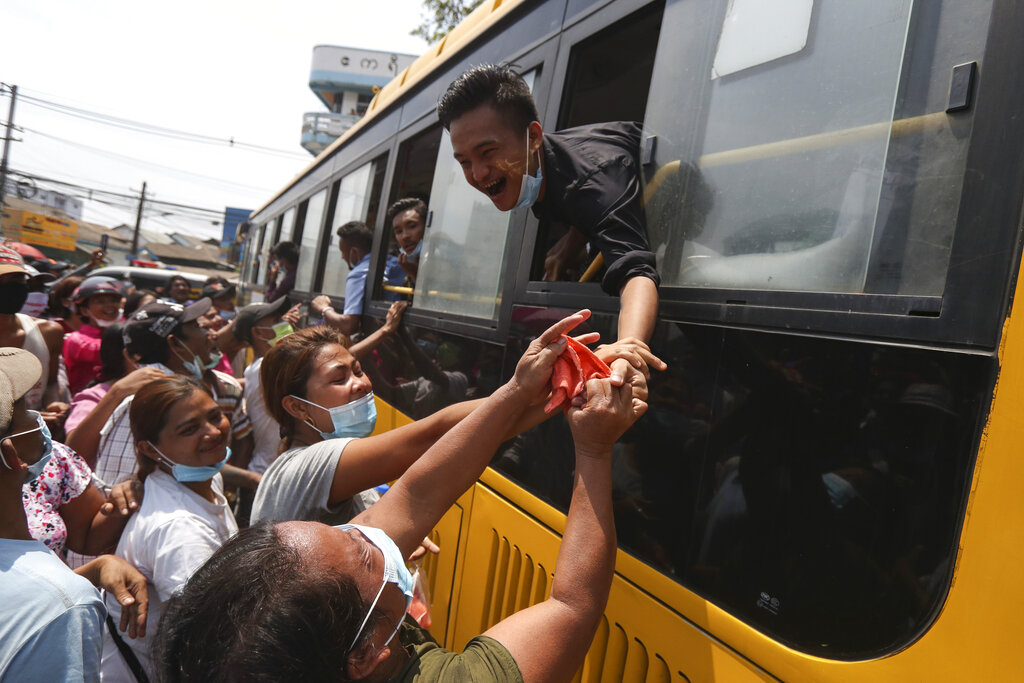
A prisoner reaches out from a bus to shake hands with family members after being released from the Insein prison during a presidential pardon in Yangon, Myanmar, Friday, April 17, 2020. Myanmar says it is releasing almost 25,000 prisoners under a presidential amnesty marking this week's traditional Lunar New Year celebration. AP
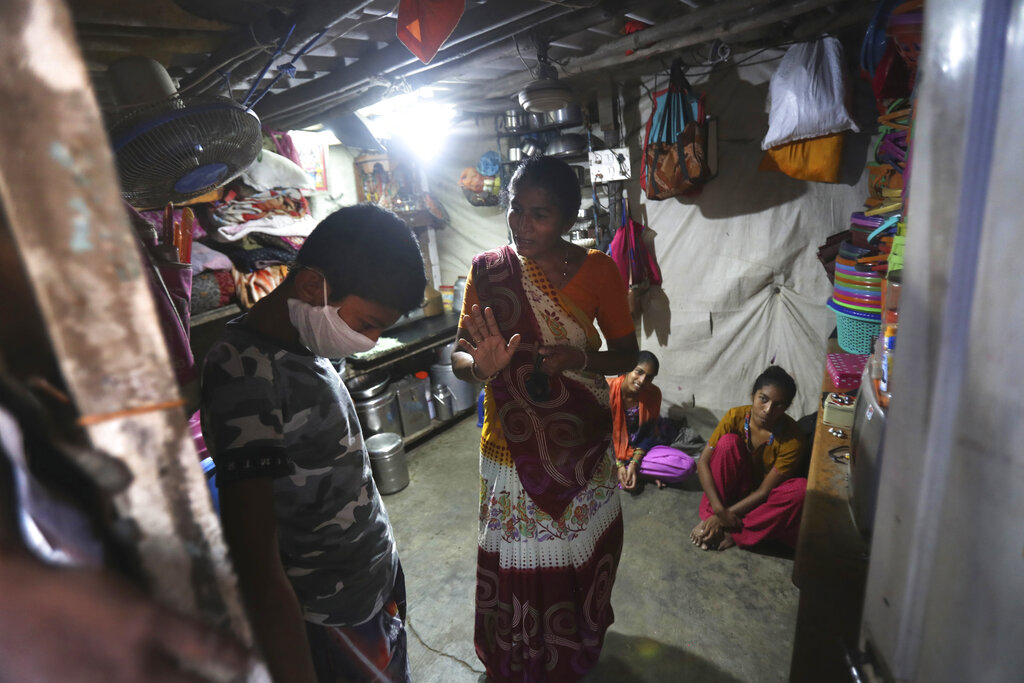
Mina Ramesh Jakhawadiya, center, scolds her son Ritik Ramesh, left, not to go out and play because of coronavirus and be in the house in Mumbai, India. Jakhawadiya makes a living selling cheap plastic goods with her husband on the streets of Mumbai. For her, the order means 21 days in a 6-by-9 foot room with five people, no work, a couple days of food and very less cash. As governments around the world debate ways to slow the spread of coronavirus, India has launched one of the most draconian social experiments in human history, locking down its entire population, including hundreds of millions of people who struggle to survive on a few dollars a day. AP file photo

Protesters carry rifles near the steps of the Michigan State Capitol building in Lansing, Mich., Wednesday, April 15, 2020. Flag-waving, honking protesters drove past the Michigan Capitol on Wednesday to show their displeasure with Gov. Gretchen Whitmer's orders to keep people at home and businesses locked during the new coronavirus COVID-19 outbreak. AP
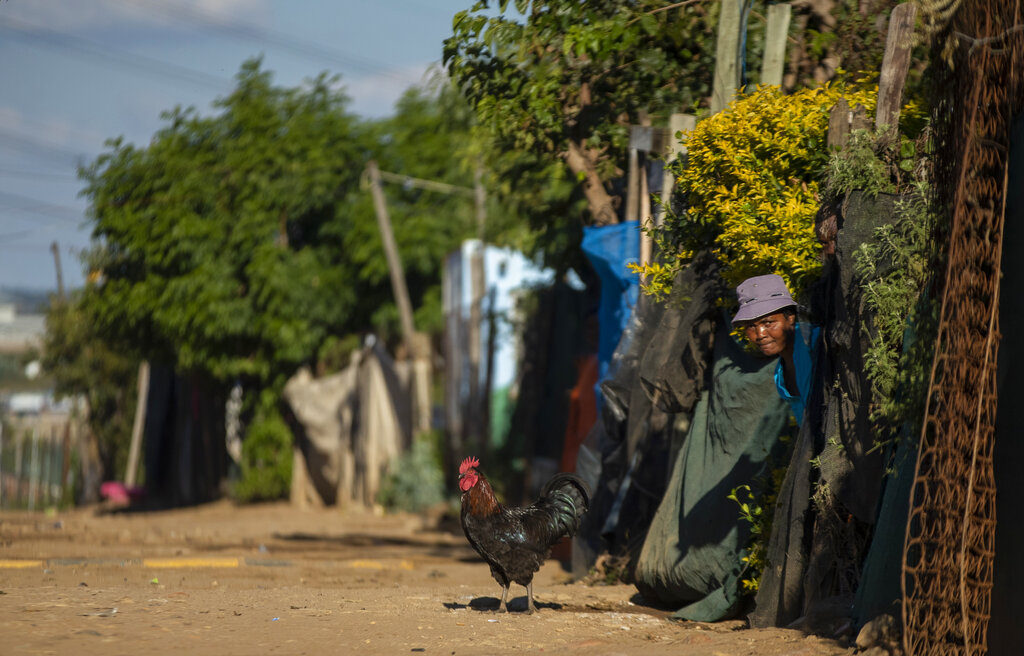
A woman watches as the South African National Defence Forces members patrol the street in Diepsloot informal settlement, north of Johannesburg, South Africa, Thursday, April 16, 2020. South African President Cyril Ramaphosa extended the lockdown by an extra two weeks in a continuing effort to contain the spread of COVID-19 coronavirus. AP










